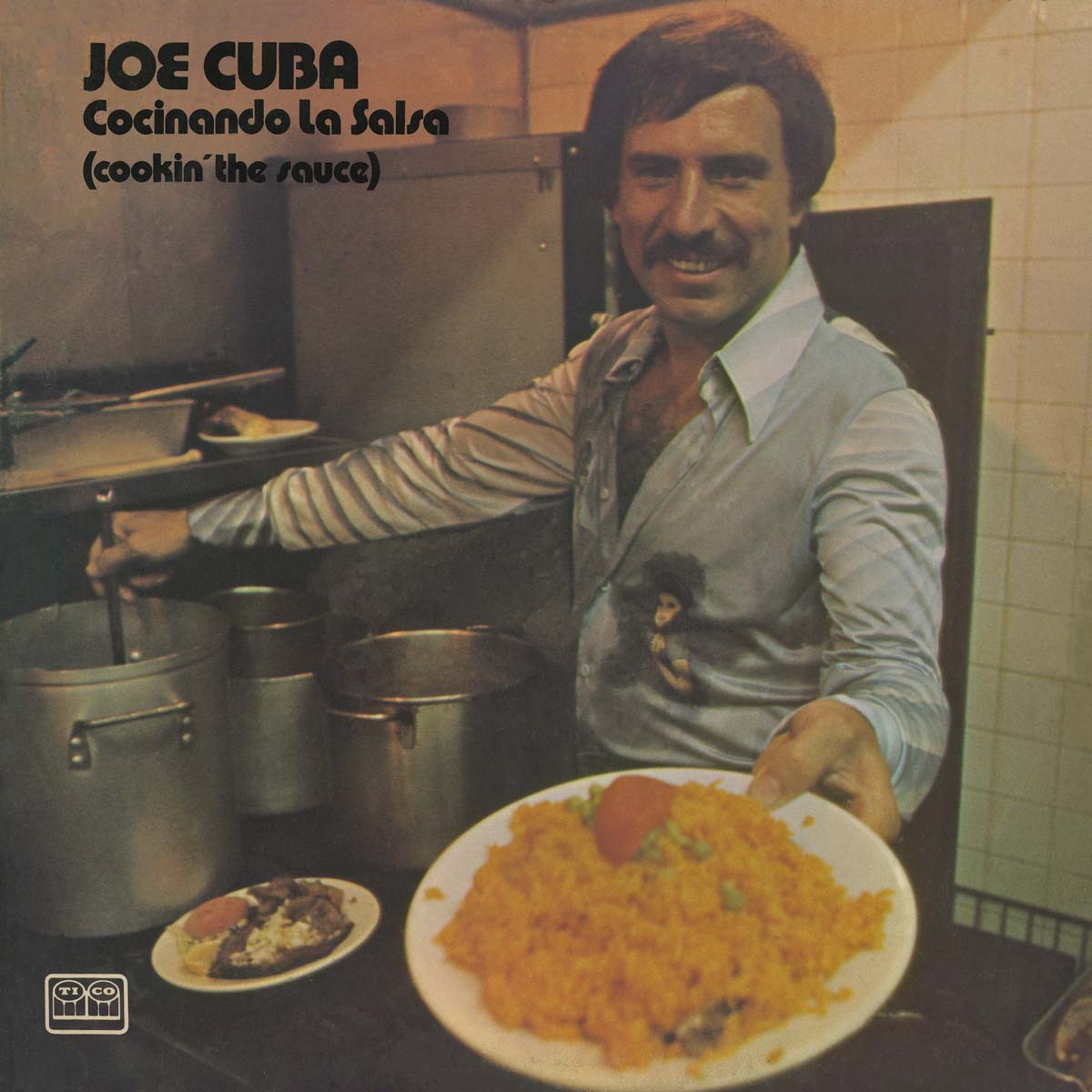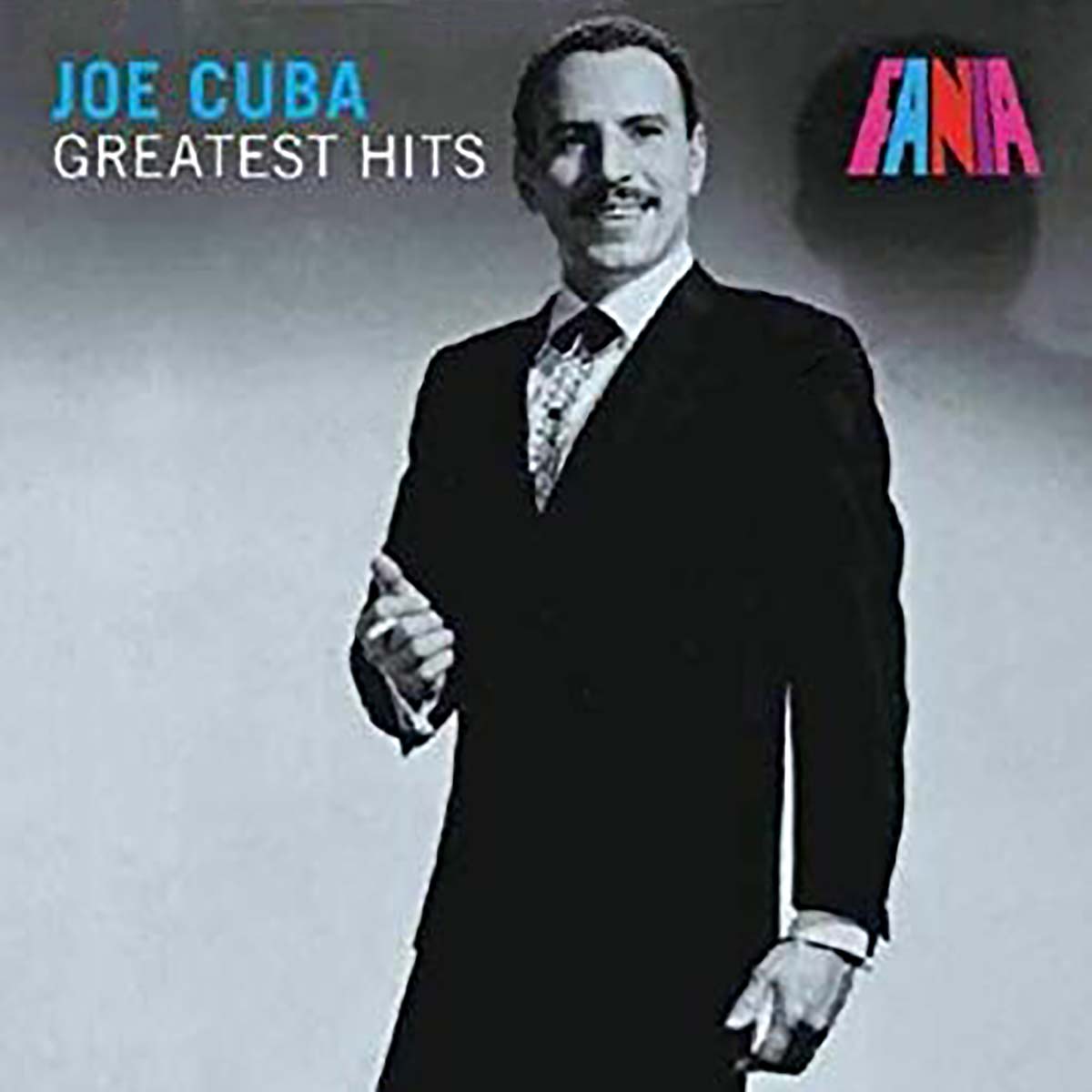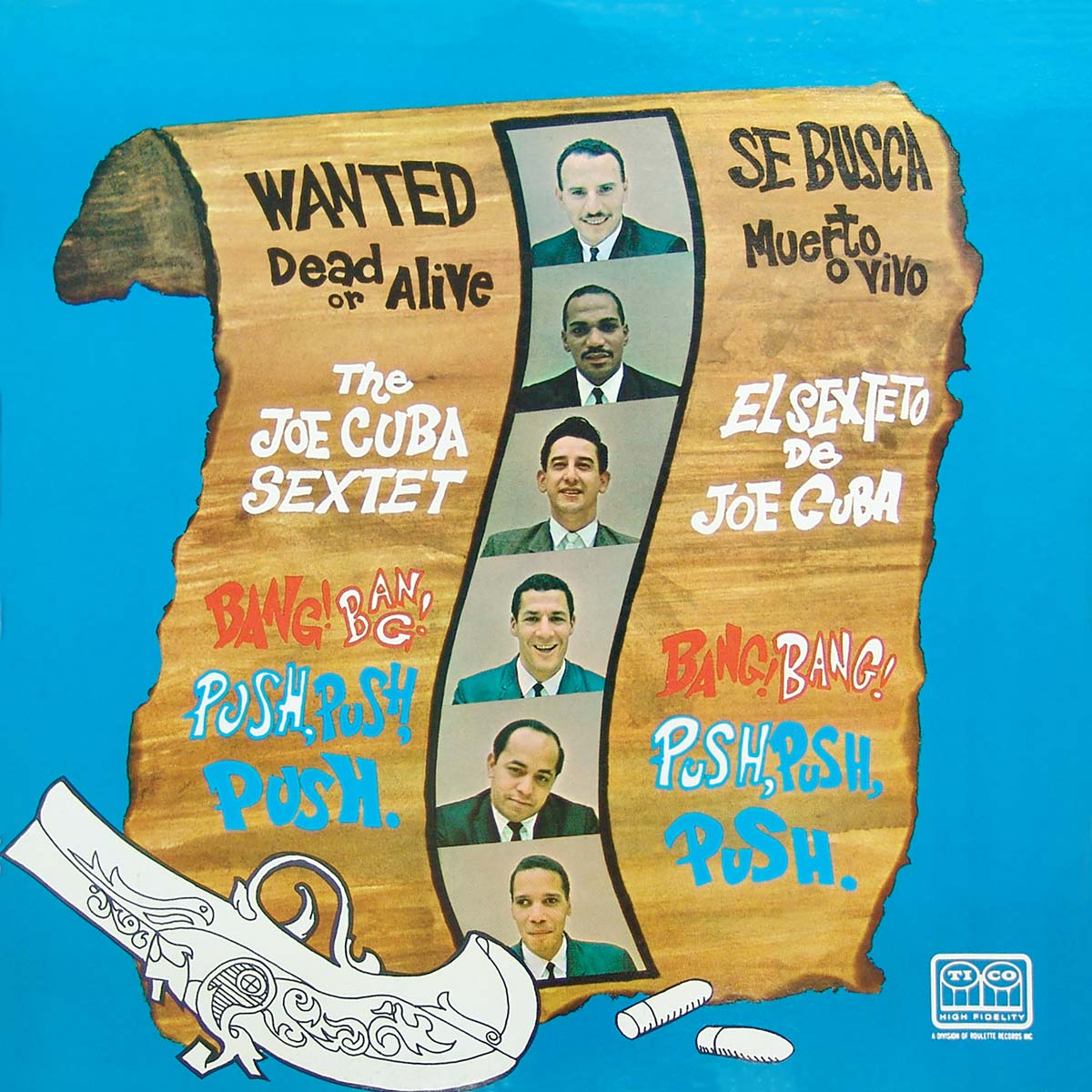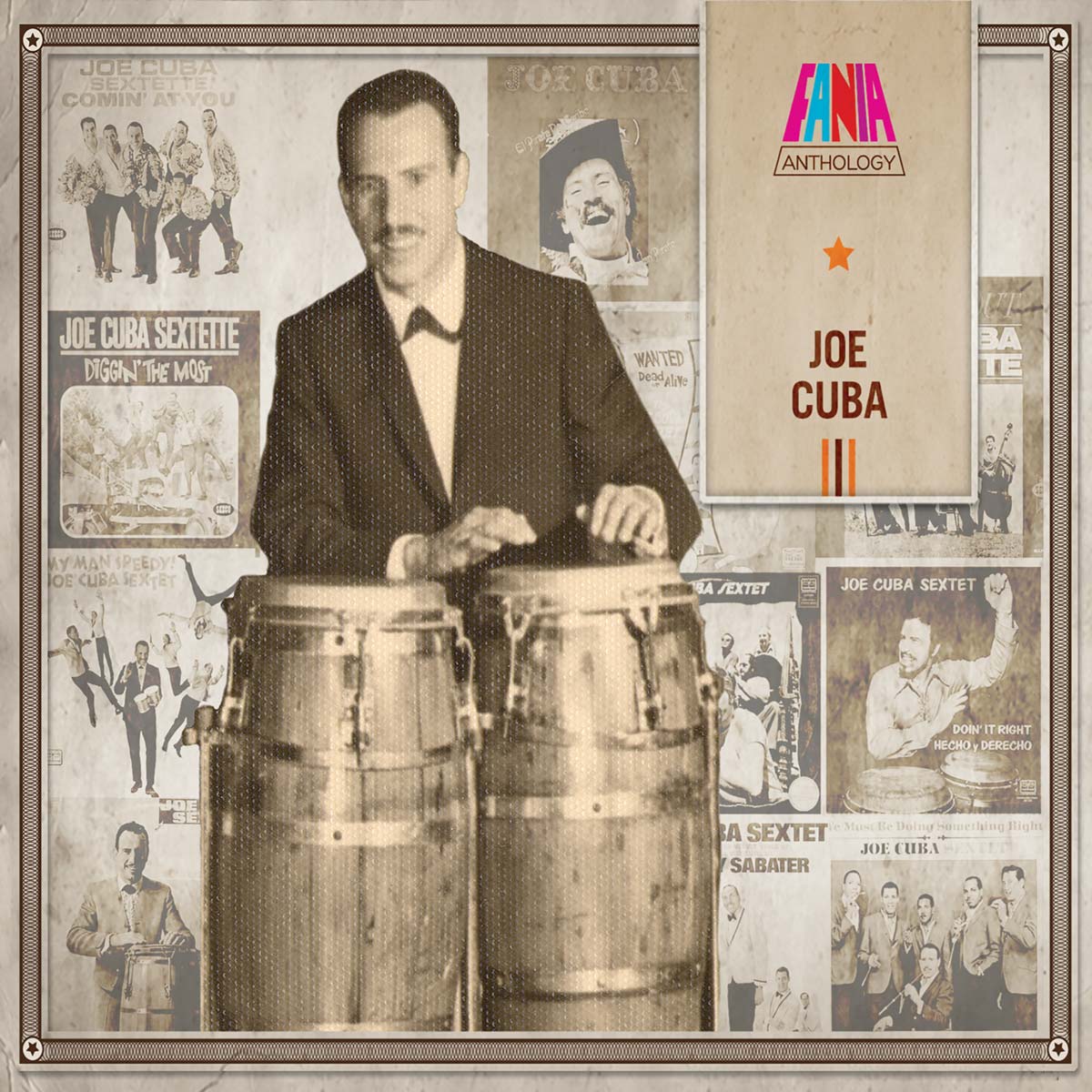
In 1954, a Latino musician from the Spanish Harlem named Gilbert Calderón (aka Joe Cuba) decided to form a sextet with no brass and a bilingual singer. This man felt that the power of the English lyrics would allow the Latin sounds to reach an English speaking audience. And he was right: the group became an immediate hit. Its first single, “Ritmo De Cha Cha,” and especially the first mambo with English lyrics of the time were hit singles. They were followed by six best selling albums, culminating with the blockbuster Bang Bang with which the group crossed over into the pop field, appearing in a number of high profile television shows.
In the early ’70s, I received a call from Jerry Masucci, the owner of Fania Records. “Congratulations, Joe,” he told me. “I just purchased the Tico and Alegre labels, which means that you are now a Fania artist.” I went to his office for the required paperwork, and as I was about to leave, he said to me: “Good luck, Joe. Now bring me a blockbuster salsa album.”
I went into the office next door and called Tito Puente to ask him about salsa. Tito said to me: “The only salsa I know is the one that I put on my steak and potatoes.” As it turns out, I had no problem with this. Rice and beans are my soul food.
In order to make a good sauce, you need the right ingredients. In this case, it was singer Mike Guagenti, whom I had worked with before. He had a smooth sound with a great range. In addition, he was a gifted composer and sounded different from my other vocalists. I also chose Sonny Bravo on piano and Johnny Rodríguez on bongo, both from the Tito Puente band. I used two bass players on this record – Slim Cordero’s funky sound and Eddie Gua Gua’s swinging style. A member from my original sextet, Jimmy Sabater was the timbalero, and I played the congas. I asked Louie Ramírez, the musical director with Fania Records, to recommend a new sound that would clash with the vibes. He suggested Harry Viggiano on guitar. We then added the trap drums of Alphonse Mouzon.
Mike Guagenti had composed a special tune for this album: “Ataca De Nuevo” welcomes the group back into the recording world. “Aquí llegó el diablito”. Here comes the devil with his pitch fork. The DJs loved that song, turning it into a hit.
I had asked “Heny” Alvarez – one of my favorite composers – to write a song with ambiguous lyrics. He came up with “El Monito y El León,” a fun tune, and my favorite track on the entire album.
“Elube Changó” is a composition of mine, boasting the trademark ’60s Joe Cuba sound. “Quinto Sabroso” includes a cooking conga solo. A lot of fans would come up to me and always ask me to include a conga solo on a record. “Joe Cuba’s Latin Hustle” was a sexy track – requested on the radio at night, since it put late night revelers in the mood for love.
“Mi Jeva” is the second of Mike Guagenti’s two compositions on this album. He talks about his girlfriend and the way she treats him: breakfast in bed, Latin gourmet for dinner and more to come in the evening.
We closed the album with Willie García’s “Tremendo Rumbón” – a simmering salsa guaguancó.
Well, here you have it. An album that finally explains the full meaning of the word “salsa.” I think it should keep my fans happy.
Credits:
Joe Cuba – Congas
Sonny Bravo – Piano
Slim Cordero – Bass
Eddie “Gua Gua” Rivera – Bass
Phil Díaz – Vibes
Louie Ramírez – Vibes, Synthesizer
Alphonse Mouzon – Drums
John Rodríguez – Bongos
Jimmy Sabater – Timbales
Harry Viggiano – Guitar
Lead Vocals – Mike Guagenti
Chorus – Sonny Bravo, Adalberto Santiago
Producer – Louie Ramírez
Recording Director – Joe Cuba
Recorded at – Good Vibrations Sound Studios, N.Y.C. (Engineer: Jon Fausty), Bell Sound Studios, N.Y.C. (Engineer: Fred Weinberg)
Musical Arrangements – Sonny Bravo (“Ataca De Nuevo,” “Mi Jeva”), Louie Ramírez (“El Monito y El León”), Nick Jiménez (“Elube Changó”), Héctor Rivera (“Quinto Sabroso”), Joe Cuba (“Joe Cuba’s Latin Hustle”), Marty Sheller (“Salsa Ahí Na’ Má”), Alfredo Rodríguez (“Tremendo Rumbón”)
Original Album Photography – Lee Marshal
Liner notes written by Joe Cuba






